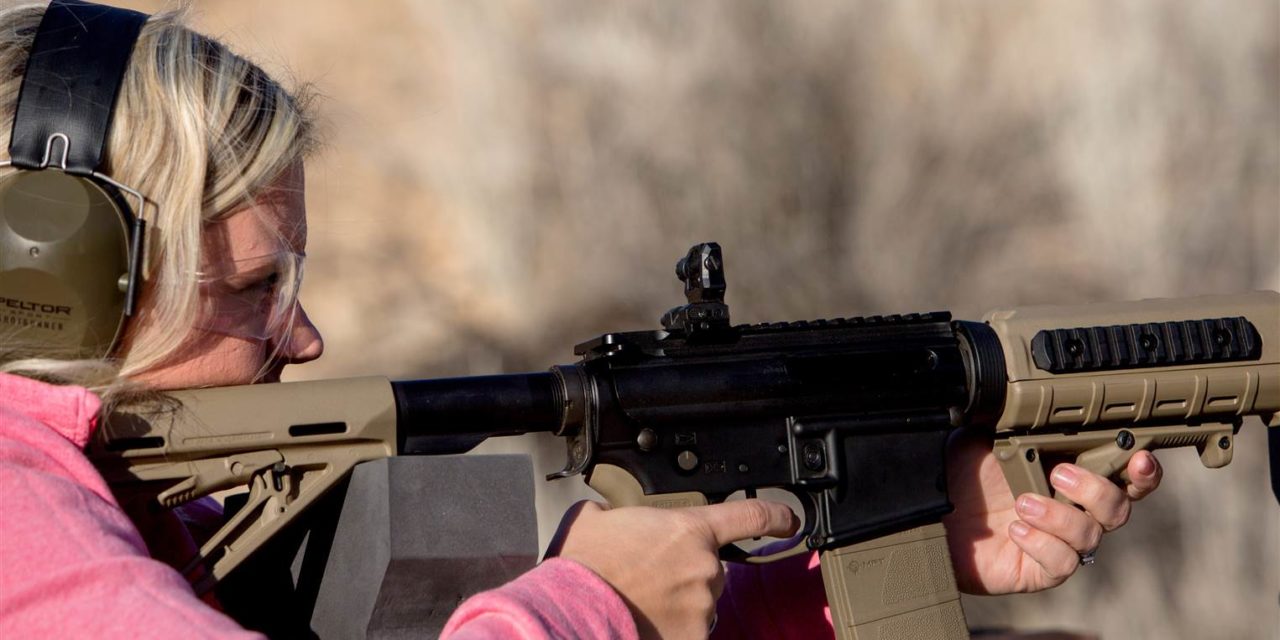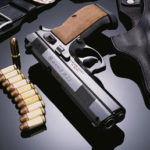As Congress and the nation grapples with solutions to gun violence, it has become increasingly clear that the deep political divide between rural and urban America is exposed nowhere moreso than in the debate over gun rights.
In response, a Duke Law School professor has suggested that the answer to endless 2nd Amendment controversies may be to let each community choose their level of gun control. That may sound overly simplistic but America’s gun violence problem differs dramatically among rural areas and small towns compared to big cities and expanding suburbs.
The idea presented by professor Joseph Blocher is that, in many urban areas, people fear the prevalence of guns – mostly cheap pistols — on their streets and they seek a crackdown. In rural areas, firearms — especially rifles, whether the deer-hunting kind or the military style — remain a part of the longstanding gun culture.
So, why not let these divergent communities go their separate ways on regulating guns in a logical manner?
Anti-gun march in Washington misses target
Saturday’s “March For Our Lives” event in Washington, led by high school students far and wide, represents the latest gun control effort aimed at Congress.
But a hopelessly gridlocked, anemic House and Senate seems incapable of taking action on gun control measures, even those that receive 70 percent to 90 percent support in polls from the American public.
In contrast, the early U.S. history of gun controls was rooted in local control.
Here is a portion of the professor Blocher’s argument:
Gun violence is disproportionately concentrated in densely populated areas. Roughly 60 percent of American gun homicides occur in the nation’s 50 largest metro areas. In Connecticut, for example, 67 percent of gun homicides occur in just three cities, which together account for just 11 percent of the state’s population.
On the flip side, the benefits of gun use are disproportionately rural. People in rural areas are far more likely to grow up with guns, and to use them for hunting and recreation. They might also face longer police response times, and so feel an increased need for a firearm in the home as a matter of personal safety.
Given these different experiences, it’s unsurprising that supporters of stricter gun regulation tend to be highly concentrated in cities and relatively rare in rural areas, and also that advocates and opponents of such regulation sound (and feel) as if they’re talking across deep cultural divides. Even in gun-friendly states like Texas, the differences can be stark, with urban poll respondents nearly twice as likely to say they favor stricter gun laws.
Yet, the solutions proposed by Blocher, author of the Yale Law Journal article “Firearm Localism,” would require a difficult, dramatic turnaround in U.S. gun policies. The trend for two decades, pushed by the National Rifle Association, has created laws in 42 states that wholly or mostly eliminate local control policies. Michigan has emerged near the top of that list.
In Michigan, the gun laws that prevail in some of Detroit’s scariest neighborhoods are identical to those in the old-fashioned rural communities of the Upper Peninsula. Does that make sense?
Local controls banned by Michigan Legislature
Yet, the Michigan Legislature took a huge step toward wiping out local control of gun laws in 2015 when they put the traditional, local process of granting concealed-carry weapons licenses on automatic pilot, making it much less likely that the emotionally unhinged will be blocked from carrying a weapon on the streets.
This largely overlooked legislation dissolved the county gun boards — consisting of three local law enforcement officials — that had exercised discretion for nearly 90 years in approving these carrying a concealed weapon (CCW) permits. Instead, county clerks, in conjunction with the Michigan State Police, now automatically grant approval to someone who wants to pack heat, based on a successful written application and a criminal background check.
Shutting down the county Concealed Weapons Licensing Boards took away the judicial-like discretion of the three board members – the sheriff, the prosecutor and a local representative from the state police. These boards, in preparation for their monthly hearings, secured detailed material on first-time applicants that went beyond arrests and convictions. At their most basic push for public safety, the gun boards applied the “village idiot” standard, with officials denying a CCW permit to someone who most people in in the community knew as a loose cannon.

If a strict local control approach took hold nationwide gun rights advocates should note that, other than Washington D.C. and Chicago, no American city in recent history has attempted a staunch anti-gun policy, such as a ban on handguns.
The District of Columbia vs. Heller U.S. Supreme Court decision in 2008, which struck down the D.C. handgun ban, marked the first time in American history that the high court specifically ruled that the 2nd Amendment permitted individual gun ownership solely for the purpose of personal protection.
Still, the majority opinion in the Heller case, authored by the late Justice Antonin Scalia, stipulated that “longstanding” local and state gun laws barring “dangerous and unusual weapons” were constitutional.
Since the Heller case, more than 1,000 2nd Amendment challenges have been filed in federal courts, and more than 90 percent have failed.
Founding Fathers did not object to local controls
Professor Blocher argues that no historic feature of American gun regulation remains more longstanding than community standards that allow stricter regulation of guns in cities.
For example, in the early days of American independence in Boston a strict city ban existed on possession of loaded guns in homes, even as those living outside the city limits could and did rely on guns for hunting and self-protection. The Founding Fathers expressed no noticeable objections to these regulations or others like them.
Of course, obvious weaknesses exist in the entirely-local approach to gun laws. A legal gun owner abiding by the laws in his or her community could face a patchwork of attempts to abide by local laws while traveling any significant distance.
In addition, big-city laws designed to crack down on unsavory weapons such as the cliched gun of choice by criminal gangs — the cheap, junk pistols known as “Saturday night specials” — have been routinely undercut by a black market of cross-state gun sales.
Still, some states, particularly Virginia, have made significant progress in shutting down the illegal sales of guns from the commonwealth to East Coast cities such as New York.
It’s important to remember that, about 60 percent of U.S. gun deaths consist of suicides, a small portion are blamed on accidental shootings, and many of the remainder are not comprised of Hollywood-style street violence but rather consist of angry disputes in which the shooter knows the victim – a spouse, an adult child, family relative, girlfriend, ex-wife, friend or neighbor.
Adopting the local control approach might not produce a short-term, dramatic decrease in gun deaths nationwide, but it may gradually present a breakthrough approach to the nation’s stubborn gun debate. Rural communities could adopt lenient gun controls that apply to their culture. Urban areas could embrace strict limitations to deal with their high homicide rates. And officials in the suburbs could approve rules that lie somewhere in between.
It’s worth a shot.







